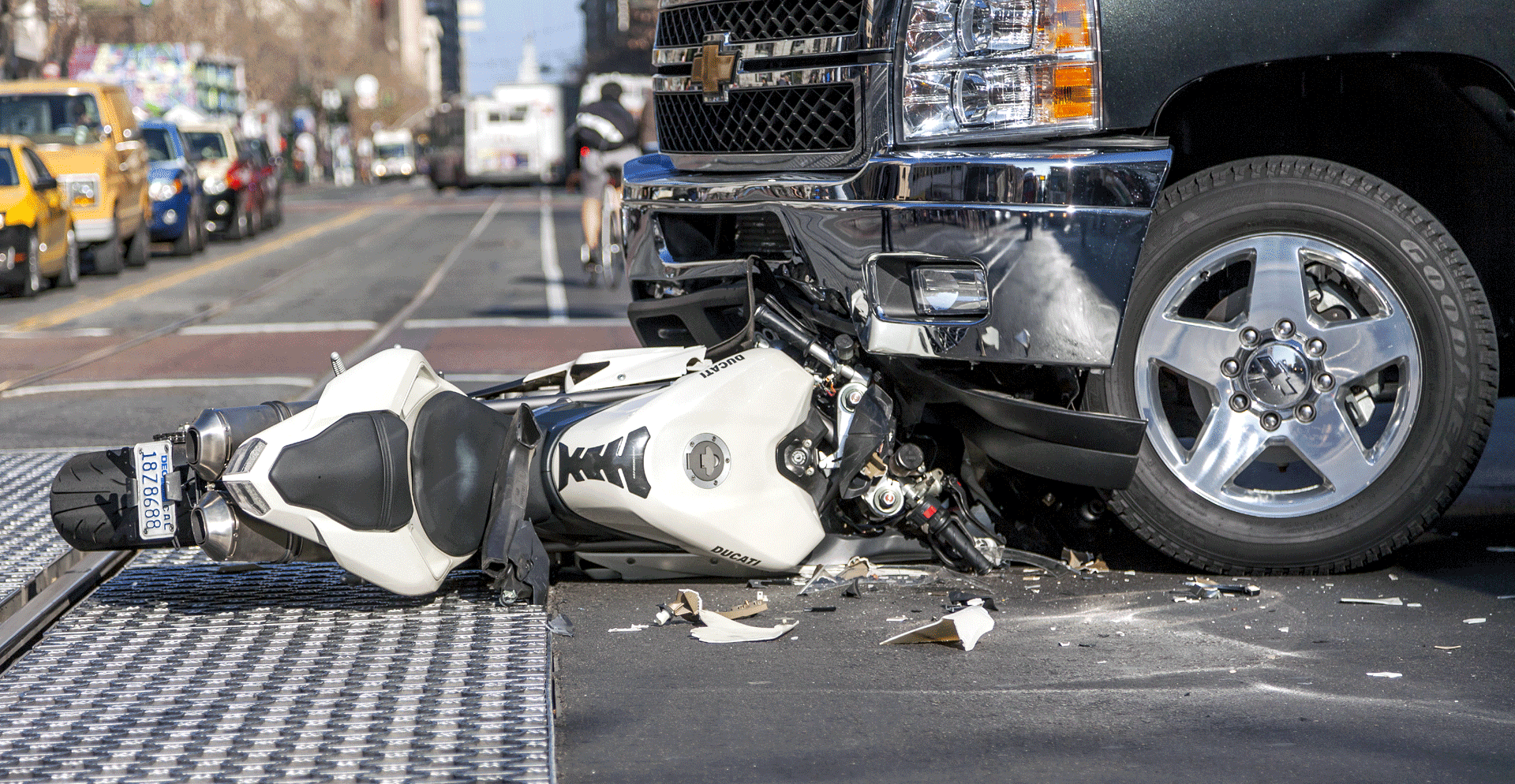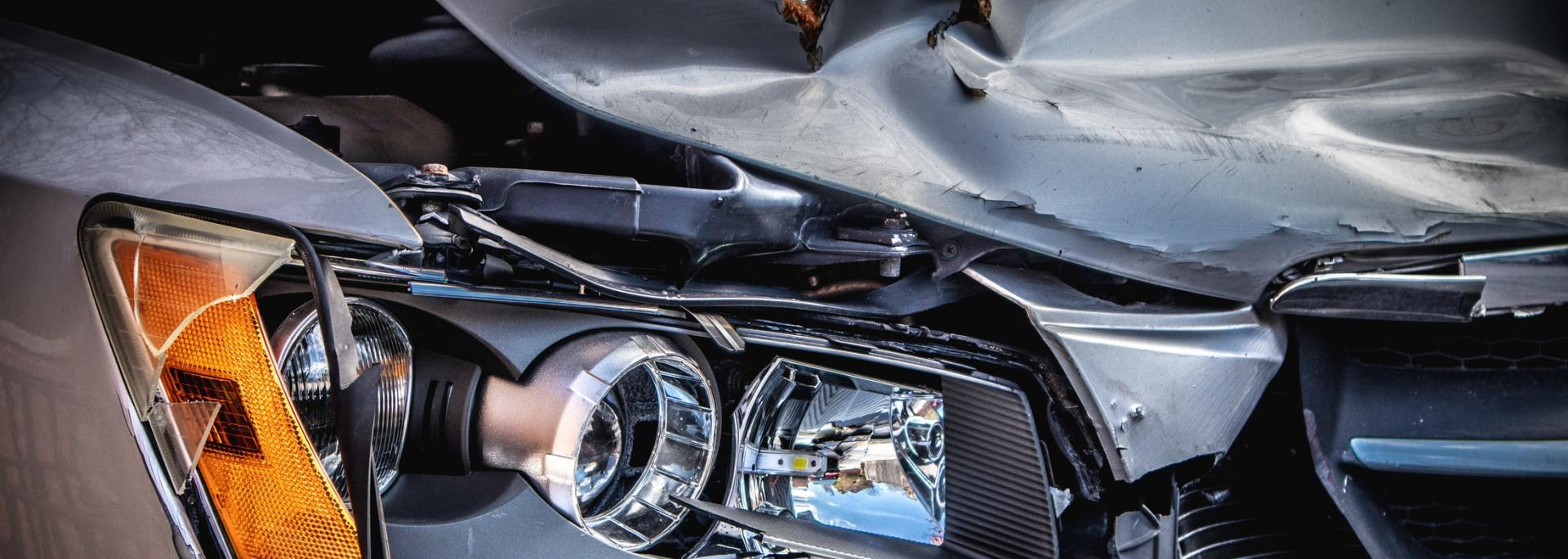PHOENIX MOTORCYCLE ACCIDENT PERSONAL INJURY ATTORNEYS
Motorcycle Lawyers Committed to Justice for Injured Motorcyclists
When selecting a motorcycle accident injury attorney to represent you for an injury claim arising from a motorcycle-versus-motor vehicle collision, make sure that the attorney has experience handling motorcycle collision cases and that the attorney handling your claim has actual experience riding a motorcycle.
Eric Shapiro
ATTORNEY
Motorcycle Accidents: Similar to an Auto Accident - But NOT THE SAME
In certain ways, a motorcycle collision is very similar to an automobile collision. All motorists have a duty to operate their vehicles in a safe and prudent fashion. If a motorist drives in an unreasonable fashion and collides with a motorcyclist, the motorist will be responsible for the motorcyclist’s damages (medical bills, lost income, pain and suffering, property damage, etc.).
That being said, it is a major mistake for an attorney to treat a crash involving a motorcycle like an ordinary automobile collision.
Shouldn't Your Attorney Be a Motorcyclist?
When selecting an attorney to represent you for an injury claim arising from a motorcycle versus motor vehicle collision, make sure that the attorney has experience handling motorcycle collision cases and that the attorney handling your claim has actual experience riding a motorcycle.
You might ask yourself, why would that make any difference? The answer is simple: An attorney who has actual experience riding a motorcycle will recognize the difference between riding a motorcycle on a city street versus driving an automobile, and this knowledge can be used to prove fault for a crash (which initially, often erroneously falls upon the motorcyclist’s shoulders).
Eric Shapiro obtained his motorcycle license in 1999 and has owned motorcycles, quads, ATVs, and side-by-sides for the past 20+ years. Eric applies his first-hand knowledge and experience riding motorcycles to the cases that he handles and is able to provide you with the very best representation if you were injured while riding a motorcycle.
Motorcycle Injury Verdicts and Settlements
- $1.1 million: Our client laid down his bike to avoid a vehicle making a left-hand turn in front of him
- $750,000: A vehicle that ran a red light struck our client in "T-bone" fashion
- $120,000: Our client was struck by a highway motorist passing another vehicle
Practical Post-Injury Articles


Motorcycle Accidents and Motorist Responsibility
Arizona is a “pure comparative fault” state. This means that each motorist is responsible for his/her own percentage of fault in a collision. Fault for a crash can fall 100% on a single motorist or it can be split up among multiple drivers involved in a single collision (for example, Driver A is 80% at fault and Driver B is 20% at fault). In situations involving comparative fault, the percentage of fault will be used to reduce the value of an individual’s personal injury claim. Following the same 80% versus 20% split in fault, if Driver B has an injury claim that is worth $10,000, the value of this claim would be reduced by 20% and Driver B would only receive $8,000 from his injury claim. Properly determining fault is a significant part of the initial job of a personal injury attorney.
In motorcycle collisions, adjusters regularly assert that the collision involved fault on the part of both the motorist and the motorcyclist to reduce the insurance carrier’s responsibility for paying a motorcyclist’s damages. The typical argument is that the motorcyclist was “speeding” and that the speed contributed to the cause of the crash. An inexperienced attorney may accept this argument at face value and agree to reduce his/her client’s recovery by 10 or 20% depending upon the argument made by the adjuster. An experienced attorney with riding experience will know that this is a sham argument and will prove otherwise. Motorists will almost always argue that the motorcyclist “came out of nowhere” so he or she “must have been speeding.” These arguments arise because of a visual perception issue that is associated with the size of a motorcycle versus the size of an automobile.
Studies repeatedly show that motorists are better at judging the speed of an oncoming car versus the speed of an oncoming motorcycle. This is especially true in the evening, when a motorist only has a single headlight (motorcycle) coming towards them (interestingly, studies show that motorists are better able to judge the distance and speed of a motorcyclist when the motorcycle has multiple headlights). As a result of the size of the motorcycle or a single headlight, motorists are unable to properly gauge the distance and speed of oncoming motorcycles and instinctively shift the blame to the motorcyclist instead of admitting that they simply misjudged the distance and/or speed of the motorcycle. An experienced motorcycle attorney is aware of these issues, knows how to disprove these arguments, and knows how to properly determine fault in a crash which will, in turn, increase the value of an injury claim (by removing the comparative fault argument that reduces the amount that the carrier has to pay on a claim). Ensuring that your attorney has actual riding experience can make all the difference between recovering 100% of your damages versus 80% or less of your damages.
Motorcycle collisions, unfortunately, frequently result in serious head injuries. In Arizona, helmets are not required for motorcyclists that are 18 years of age or older; however, Arizona Revised Statute § 28-964 does state that any operator or passenger of a motorcycle under 18 years of age must wear a protective helmet. Since the use of a helmet is not mandated by law, we often represent motorcyclists (who were not wearing helmets) who have sustained head injuries as a result of a collision.
Under such circumstances, the insurance carrier will argue that it is not responsible for any damages associated with the head injury due to the motorcyclist’s failure to wear a helmet. This is known as a “helmet defense.” Studies have shown that
the use of a DOT-approved motorcycle helmet will not prevent a head injury from occurring. An attorney with experience representing motorcyclists knows how to defeat this argument in order to maximize a client’s injury claim.









